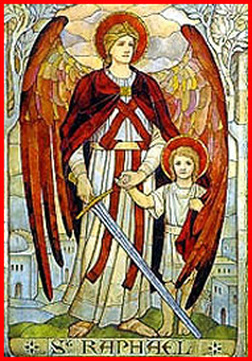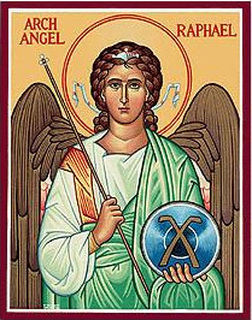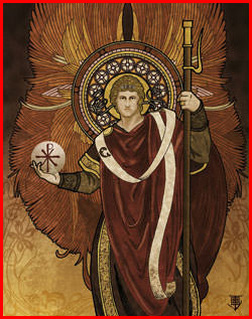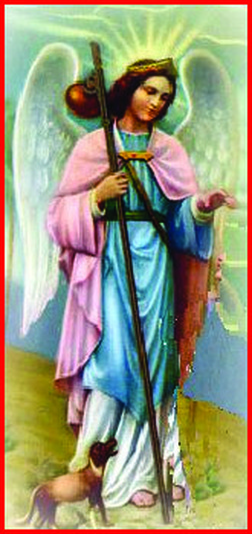| Devotion to Our Lady |
|
- Homepage
-
Daily Thoughts
- 2023 October Daily Thoughts
- Daily Thoughts Lent 2020
- Daily Thoughts for Advent 2019
- Daily Thoughts for October 2019
- Daily Thoughts for September 2019
- Daily Thoughts for August 2019
- Daily Thoughts for July
- Daily Thoughts for June
- Daily Thoughts for Easter 2019
- Daily Thoughts for Lent 2019
- Daily Thoughts for Christmas
- Daily Thoughts Easter 2022
- Consecration
- Easter Season
-
Spiritual Life
- Holy Mass Explained
- First Friday Devotions
- First Saturday Devotions
- The Mercy of God
- Vocations
- The Path Everyone Must Walk >
- Gift of Failure
- Halloween or Hell-O-Ween?
- Ignatian Spiritual Exercises >
- Meditation is Soul-Saving
- Spiritual Communion
- Miraculous Medal
- Enrollment in Miraculous Medal
- St. Benedict Medal
- Holy Water
- Advice on Prayer
- Your Daily Mary
-
Prayers
- September Devotions
- Seven Sorrows of Our Lady
-
Novenas
>
- NV-Help of Christians
- NV-Nativity of Our Lady
- NV-Seven Sorrows
- NV- Sorrowful Heart
- NV-Pope St Pius X
- NV-La Salette
- NV-St Michael Archangel
- NV-Immaculate Heart
- NV-Assumption
- NV-Novena for Fathers
- NV-Novena for Your Mother
- NV-St Raphael Archangel
- NV-Souls in Purgatory
- NV-All Saints Day
- NV-Christ the King
- NV-Divine Motherhood
- NV-Guardian Angels
- NV-Rosary
- NV-Mirac Med
- NV- Imm Conc
- NV - Guadalupe
- NV - Nativity of Jesus
- NV-Epiphany
- NV-OL Good Success
- NV-Lourdes
- NV-St Patrick
- NV-St Joseph
- NV-Annunciation
- NV-St Louis de Montfort
- NV-OL Good Counsel
- NV-Last Supper
- NV-Passion
- NV-Pentecost
- NV-Ascension
- NV-Sacred Heart
- NV-Sacred Heart & Perpetual Help
- NV-Corpus Christi
- NV-OL of Perpetual Help
- NV-Queenship BVM
- NV-OL of Mount Carmel
- NV-St Mary Magdalen
- NV- Im Hrt
- August Devotions to IHM
- Immaculate Heart of Mary
- Litany of Dependence
- Prayers to St Mary Magdalen
- Prayers in Times of Sickness Disease & Danger
- Holy Souls in Purgatory
- Meditations on the Litany of Our Lady
- Special Feast Days
- Prayers to Mary (Mon-Sun)
- Litanies to Our Lady >
- Various & Special Needs
- Our Lady of the Rosary
- Our Lady of Mt. Carmel
- Our Lady of Perpetual Help
- Our Lady of Guadalupe
- Other titles of Our Lady
-
Rosary
- Downloads
-
Holy Week
- Last Seven Words of Jesus >
- Characters of Passion >
- The Last Days of Christ
- Before Palm Sunday
- Palm Sunday
- Monday in Holy Week
- Tuesday in Holy Week
- Wednesday in Holy Week
- Holy Thursday (Last Supper)
- Holy Thursday (Agony & Arrest)
- Night Vigil with Christ
- Good Friday (Pilate & Herod)
- Good Friday (Way of Cross & Crucifixion)
- Saturday in Holy Week
-
Lent
- Ideas for Lent
- Daily Lenten Planner
- Daily Lenten Liturgy
- From Cold to Hot
- Lent with Aquinas
- Lent with Dom Gueranger
- Virtues for Lent
- History of Penance
- How Expensive is Sin?
- Confession of Sins
- Letter to Friends of the Cross
- Sermons for Lent
- Stations of the Cross >
- Lenten Prayers
- 7 Penitential Psalms
- Lenten Psalms SUN
- Lenten Psalms MON
- Lenten Psalms TUE
- Lenten Psalms WED
- Lenten Psalms THU
- Lenten Psalms FRI
- Lenten Psalms SAT
- Lenten Laughs
- Septuagesima
-
Christmas
- Epiphany Explained
- Suggestions for Christmas
- Food For Thought
- Christmas with Aquinas
- Christmas with Dom Gueranger
- Christmas Prayers
- Candles & Candlemas
- Christmas Sermons
- Christmas Prayers SUN
- Christmas Prayers MON
- Christmas Prayers TUE
- Christmas Prayers WED
- Christmas Prayers THU
- Christmas Prayers FRI
- Christmas Prayers SAT
- Twelve Days of Christmas >
-
Advent Journey
- Purgatory
- Christ the King
- Legion of Mary
- Scapular
- Sacred Heart
-
Saints
-
Martyrs for the Faith
>
- Your Daily Martyr >
- All 365 Days of Martyrs
- Cristeros
- St Valentine & Valentine's Day
- Martyrs--Thomas Becket
- Martyrs--John the Apostle
- Holy Machabees
- Age of Martyrdom
- Carmelites of Compiegne
- Martyrs--Peter & Paul
- Martyrs--John the Baptist
- Martyrs--Andrew
- Martyrs--James the Great
- Martyrs--North American
- Martyrs--Seven Holy Sleepers
- Martyrs--Afra
- School of Martyrdom
- Martyrs--Christina
- Desert Saints >
- Saints for Sinners >
- Saints of Mary >
- History of All Saints Day
-
Martyrs for the Faith
>
- Precious Blood
- Holy Ghost
- Synod 2023
-
Catechism
- Catechism Lesson 1
- Catechism Lesson 2
- Catechism Lesson 3
- Catechism Lesson 4
- Catechism Lesson 5
- Catechism Lesson 6
- Catechism Lesson 7
- Catechism Lesson 8
- Catechism Lesson 9
- Catechism Lesson 10
- Catechism Lesson 11
- Catechism Lesson 12
- Catechism Lesson 13
- Catechism Lesson 14
- Catechism Lesson 15
- Catechism Lesson 16
- Catechism Lesson 17
- Catechism Lesson 18
- Catechism Lesson 19
- Catechism Lesson 20
- Catechism Lesson 21
- Catechism Lesson 22
- Bible Study
-
Calendar
- Miracles
- Apparitions
- Shrines
- Prophecies
- Angels Homepage
- Hell
-
Church Crisis
- Conspiracy Theories
- Amazon Synod 2019 >
- Liberalism & Modernism
- Modernism--Encyclical Pascendi
- Modernism & Children
- Modernism--Documents
- The Francis Pages
- Church Enemies on Francis
- Francis Quotes
- Amoris Laetitia Critique
- Danger of Ignorance (Pius X)
- Restore all In Christ (Pius X)
- Catholic Action (Pius X)
- Another TITANIC Disaster?
- The "Errors of Russia"
- CRISIS PRAYERS
- Election Novena 2024
- The Anger Room
- War Zone
- Life of Mary
- Spiritual Gym
- Stupidity
- Coronavirus and Catholicism
- History & Facts
- Books
- Catholic Family
- Children
- Daily Quiz
-
Novena Church & Pope
- Day 01 Church-Pope Novena
- Day 02 Church-Pope Novena
- Day 03 Church-Pope Novena
- Day 04 Church-Pope Novena
- Day 05 Church-Pope Novena
- Day 06 Church-Pope Novena
- Day 07 Church-Pope Novena
- Day 08 Church-Pope Novena
- Day 09 Church-Pope Novena
- Day 10 Church-Pope Novena
- Day 11 Church-Pope Novena
- Day 12 Church-Pope Novena
- Day 13 Church-Pope Novena
- Day 14 Church-Pope Novena
- Day 15 Church-Pope Novena
- Day 16 Church-Pope Novena
- Day 17 Church-Pope Novena
- Day 18 Church-Pope Novena
- Day 19 Church-Pope Novena
- Day 20 Church-Pope Novena
- Day 21 Church-Pope Novena
- Day 22 Church-Pope Novena
- Day 23 Church-Pope Novena
- Day 24 Church-Pope Novena
- Day 25 Church-Pope Novena
- Day 26 Church-Pope Novena
- Day 27 Church-Pope Novena
- Day 28 Church-Pope Novena
- Day 29 Church-Pope Novena
- Day 30 Church-Pope Novena
- Day 31 Church-Pope Novena
- Day 32 Church-Pope Novena
- Day 33 Church-Pope Novena
- Day 34 Church-Pope Novena
- Day 35 Church-Pope Novena
- Day 36 Church-Pope Novena
- Day 37 Church-Pope Novena
- Day 38 Church-Pope Novena
- Day 39 Church-Pope Novena
- Day 40 Church-Pope Novena
- Day 41 Church-Pope Novena
- Day 42 Church-Pope Novena
- Day 43 Church-Pope Novena
- Day 44 Church-Pope Novena
- Day 45 Church-Pope Novena
- Day 46 Church-Pope Novena
- Day 47 Church-Pope Novena
- Day 48 Church-Pope Novena
- Day 49 Church-Pope Novena
- Day 50 Church-Pope Novena
- Day 51 Church-Pope Novena
- Day 52 Church-Pope Novena
- Day 53 Church-Pope Novena
- Day 54 Church-Pope Novena
- Penance Novena
- Daily WeAtheR Forecast
click on any of the links below
| Angels Homepage | St. Michael the Archangel | St. Gabriel the Archangel | St. Raphael the Archangel | The Guardian Angels | Novena to the Guardian Angels |
| Angels Homepage | St. Michael the Archangel | St. Gabriel the Archangel | St. Raphael the Archangel | The Guardian Angels | Novena to the Guardian Angels |
ST. RAPHAEL THE ARCHANGEL, HEAL US AND GUIDE US!
|
Feast day
The feast day of St. Raphael was included for the first time in the General Roman Calendar in 1921, for celebration on October 24th. With the 1969 revision of the General Roman Calendar, the feast was transferred to September 29th for celebration together with archangels St. Michael and St. Gabriel. Due to Pope Benedict XVI’s Summorum Pontificum, the Catholic Church once again permits the General Roman Calendar of 1960, which has October 24th as St. Raphael’s feast day. Apparitions The Archangel Raphael is said to have appeared in Cordova, Spain, during the 16th century; in response to the city’s appeal, Pope Innocent X allowed the local celebration of a feast in the Archangel’s honor on May 7th, the date of the principal apparition. St. John of God, founder of the Hospital order that bears his name, is also said to have received visitations from St. Raphael, who encouraged and instructed him. In tribute to this, many of the Brothers Hospitallers of St. John of God’s facilities are called “Raphael Centers” to this day. The 18th century Neapolitan nun, St. Maria Francesca of the Five Wounds is also said to have seen apparitions of Raphael. Patronage Due to his actions in the Book of Tobias and the Gospel of John, St. Raphael is accounted patron of travelers, the blind, happy meetings, nurses, physicians, medical workers, matchmakers, Christian marriage, and Catholic studies. As a particular enemy of the devil, he was revered in Catholic Europe as a special protector of Catholic sailors: on a corner of Venice’s famous Doge’s Palace, there is a relief depicting Raphael holding a scroll on which is written: "Efficia fretum quietum" (Keep the Gulf quiet). On July 8th, 1497, when Vasco Da Gama set forth from Lisbon with his four ship fleet to sail to India, the flagship was named—at the King of Portugal’s insistence—the St. Raphael. When the flotilla reached the Cape of Good Hope on October 22nd, the sailors disembarked and erected a column in the archangel’s honor. The little statue of St. Raphael that accompanied Da Gama on the voyage is now in the Naval Museum in Lisbon. The Scriptural Account of St. Raphael and Tobias The story of the Archangel Raphael and the two Tobias’ is too beautiful and too instructive for us to dismiss it with a simple reference: it reveals how Angels act when in human form; their Angelic nature, their power, wisdom, holiness are made manifest in the various incidents of this charming narrative. The Archangel is God’s legate, he carries out God’s plan acting as an instrument of Divine Providence, and Divine Goodness. The old, charitable, and pious man Tobias is blind and feels that his days are numbered. He gives his young son Tobias some godly admonitions and tells him of some money he had lent to Gabelus of the city of Rages in Media, many years back, for which he had a regular note with Gabelus’ signature. He wants his son to go and collect that money, but he first wants him to find a man to accompany him on the long journey: "Go now and seek thee out some faithful man, to go with thee for his hire, that thou may receive it, while I yet live." While this was going on in Tobias’ home, Heaven was listening in and preparing the companion, the "faithful man" young Tobias was looking for. The Lord gave the Archangel Raphael the command to appear as a young man named Azarias, to accompany young Tobias to the land of the Medes, and to bring peace and happiness to two God-fearing but very unhappy families. As the young man stepped out of his house in search of a companion, one morning, the Archangel Raphael was there as if waiting for him, in the disguise of "a beautiful young man." "And not knowing that he was an Angel of God, he saluted him, and said: From whence art thou, good young man? But he answered: Of the children of Israel." In a very short time the Archangel informed young Tobias that he knew the road to Gabelus, and knew Gabelus himself, having spent some time there; he knew all that country very well. Tobias could hardly believe in such a happy coincidence. Immediately he took his new friend and companion and returned to his blind father. The Angel who well knew the purpose of his mission, implicitly announced it in his words of greeting directed to the blind old man, when he said: "Joy be to thee always!" Not knowing who was he who wished him joy, old Tobias replied: "What manner of joy shall be to me, who sit in darkness, and see not the light of heaven." Here the Archangel Raphael became more explicit, making both a promise and a prophecy: "Be of good courage, thy are from God [God heals, was Raphael’s own name] is at hand." He could not say more without engendering suspicion and betraying his own identity. Old Tobias regarded those kind words as an expression of good will and paid no particular attention to them; he had heard such expressions so often in the past. His interest is now in the voyage of his son, and he wants to know in whose hands he is committing the life of his only child and part of his own fortune. Upon hearing that the young guide is no less than Azarias, the son of the great Ananias, he remarks: "Thou art of a great family." Old Tobias, like his kinsman Gabelus, later on in this story, expresses his belief in the protection and guidance of guardian Angels. Not knowing that an Archangel is actually accompanying his son, he says: "May you have a good journey, and God be with you on your way, and his Angel accompany you." Had this circumstance been known to him, both he and his wife would have been spared all the worry and the sleepless nights during the long absence of their son. One thought, however, sustained the mind of old Tobias during his waiting: "Our son is safe: that man with whom we sent him is very trustworthy." How carefree, and how joyful must have been that journey for young Tobias. To travel in the happy company of an Angel! He knew the road so well. He was never in doubt about anybody or anything they met on the road; always cheerful, never tired or sleepy; so sweet and kind in his conversation, yet always full of respect and attention. He was deeply spiritual and profoundly devout in his prayers, pure in all his words and actions. How true and inspired were the words of old Tobias when, comforting his weeping wife, he said to her: "I believe that the good Angel of God doth accompany him, and doth order all things well that are about him, so that he shall return to us with joy." The sacred text remarks that when young Tobias started on his journey with his Angel companion, his pet dog followed him all the way to the East. Tobias was one of the thousands of Israelites living in the Babylonian captivity. Some of them had settled down in neighboring provinces, such as Mesopotamia, Assyria, and Media. It was exactly in this last province of Media that Tobias’ kinsman Raguel lived with his family. This was not really the goal of his trip to the East, but it was here that God and His Angel wanted him to go; whereas his father had sent him to collect his money from Gabelus in the city of Rages in the mountains of Ecbatana, in Media. The Angel by diverting his trip accomplished more fully his mission, bringing unexpected joy and happiness to three families. Having left his home town, the great city of Ninive, that morning, Tobias and his guide reached the river Tigris just before dark. They decided to spend that night by the bank of the Tigris. Here the Archangel Raphael began to reveal medical knowledge and experience. At the same time he provided food for that evening and for the rest of the journey. Weary of walking all day, young Tobias went to wash his feet in the cool water of the river before retiring. Here the sight of a monstrous fish that seemed to be coming up to devour him, frightened him exceedingly and made him cry for help: "Sir, he cometh upon me!" The Angelic guide, without coming to his rescue, instructed him on what to do, both giving him directions and inspiring him with confidence. At the end of the first day young Tobias had not yet acquired familiarity with his guide, so he calls him, Sir. Later he will call him brother. When the monstrous fish had been successfully drawn out of the river, it was cut open, roasted, and salted. "Take out the entrails of this fish," ordered the Angel, "and lay up his heart, and his gall, and his liver for thee, for these are necessary for useful medicines." These, no doubt, may have seemed strange medicines to young Tobias and he wanted to know when and how to use them. Here he begins to show more confidence and affection for the heavenly guide: "I beseech thee, brother Azarias, tell me what remedies are these things good for, which thou hast bid me keep of the fish." The Angel explains the medical virtue of those parts of the fish. More practical details are imparted as the proper time for their use approaches. The liver of the fish was needed as a material ingredient for an exorcism in order to free Tobias’ future wife Sara from the evil influence of the devil; the gall was to be used for the cure of the blindness of old Tobias. The Archangel Raphael had been sent by God to cure and comfort two afflicted souls, old Tobias and Raguel’s young daughter Sara, the widow of seven husbands, all of whom had died on the first night following their wedding to her. As night was falling, at the end of another day of their long journey, young Tobias turning to his guide asked him the customary question: "Where wilt thou that we lodge ?" Here begins the first part of Raphael’s mission. He must induce young Tobias to marry Sara, Raguel’s daughter, and at the same time deliver her from all diabolical influence and vexation. This was a very delicate matter, for sinister rumors about this young dame, as being the cause of death to seven husbands, had reached Ninive and young Tobias himself knew all about her and was deathly afraid of associating with her. At the question of where to lodge for the night, Raphael had proposed to put up at Raguel’s and for Tobias to propose to Sara, his own cousin. "I hear," answered Tobias, "that she hath been given to seven husbands, and they all died; moreover I have heard, that a devil killed them." Imagine this young man, now, going to ask for the hand of such a dame! The Archangel Raphael obtained just that, and what is more, their marriage was a very happy one, blessed with good health and long life, so that they both saw their children’s children to the fifth generation. The instructions on marital union given by the Archangel Raphael to young Tobias on this occasion remain an ideal of moral perfection for married couples for all time. Prayer, continence, and pure intention dispose the soul for God’s blessings and thwart all influence of the evil spirit. Young Tobias listened intently to his heavenly guide and later carried out his instructions most faithfully, first repeating them to his bride: "We are the children of the saints, and we must not be joined together like heathens that know not God." Amid the charming and intimate family reunion in Raguel’s home, described in chapter seven of the book of Tobias, an unseen struggle goes on in the spirit world. Young Azarias (the Archangel Raphael) absents himself for a very short while from the gathering of the family and friends in order to attend to a very important business of his own. During those few minutes, Raphael, in the name and with the power of God, "took the devil, and bound him in the desert of upper Egypt." This devil Asmodeus, who had caused so much sorrow to Sara and her family, was Satan himself. With the exile of the spirit of evil, joy, peace and all blessings came to Raguel’s home. Having attended to his business, young Azarias returned and took his place at the wedding feast, while actually contemplating the face of the Father Who is in heaven. The following morning, leaving Tobias there with his happy bride, he continues on the journey, accompanied by four servants and two camels. He finally found Gabelus and collected the money for old Tobias and, on his return, he took Gabelus to the wedding feast of his kinsman young Tobias. The last part of the mission entrusted to Raphael the Archangel was now to follow. Having brought joy and happiness to Sara and all her family, it was time to bring a similar and even greater joy to old Tobias and his wife. The slow pace of the caravan that accompanied the bride to Ninive did not suit the Archangel who well knew the pain and the worries of Tobias’ old parents: "Brother Tobias," said the Archangel, thou knowest how thou didst leave thy father. If it please thee, let us go before, and let the family follow softly after us, together with thy wife and with the beasts." Tobias agreed and taking with himself the gall of the fish, he and the Angel began to advance with much greater speed, the dog following them. It was time now to give the final instruction as to the use of the gall: "As soon as thou shalt come into the house, forthwith adore the Lord thy God, and giving thanks to Him, go to thy father and kiss him, and immediately anoint his eyes with this gall of the fish.... Thy father shall see the light of heaven, and shall rejoice in the sight of thee." In the meantime Tobias’ old mother was waiting for her son, sitting daily on top of a hill, scanning the horizon for a sign of her son and his guide. Finally one day Tobias’ pet dog, running ahead brought the joyful news to the afflicted parents by his fawning and wagging his tail. All these human and earthly elements blend beautifully with the heavenly in this charming story of Angels and men. Everything happened as promised by the Angel. Old Tobias regained his sight. At this point the heart of young Tobias was filled with gratitude, love, and admiration for his wonderful guide; so many and so great were the benefits received through him. Having witnessed the miraculous cure of his father he could find no words to express his feelings: "We are filled with all good things through him," he kept telling his father. Old Tobias understood that it was God Who was actually working all these marvels through young Azarias, and thus, full of reverence, he calls the young guide a holy man: "What can we give to this holy man, that is come with thee?" The Lord never permits man to remain in error because of the disguise assumed by His ministering spirits in any of their apparitions. Sooner or later the truth about them will be made manifest. For several weeks in succession, the Archangel Raphael had been acting under assumed human form and human name. Now that his mission has been happily completed, he begins to prepare his two friends, father and son, for a great surprise, the revelation of his real self. At the moment that they both humbly approach him offering one half of everything that had been brought home as payment for his service, young "Azarias" answers with a wonderful explanation of why God has so blessed them. He recalls to the mind of old Tobias all the good he did in his days, his charity, his mercy, his patience, his alms, and his tearful prayers. Thus he begins to reveal himself gradually in order not to frighten them with a sudden disclosure. The enumeration of all the good deeds and of secrets of conscience known only to God are the first step in this revelation; the second is the statement: "Now the Lord hath sent me to heal thee, and to deliver Sara thy son’s wife from the devil." The third and final step was liable to trouble and frighten them, hence he begins with comforting and reassuring words: "Peace be to you; fear not." As he said this, both father and son fell upon the ground on their faces, for suddenly the human form of Azarias was transfigured into that of an Archangel of light and beauty, and the final revelation came: "I am the Angel Raphael, one of the seven, who stand before the Lord . . . when I was with you I was there by the will of God: bless ye him, and sing praises to him." This is the only reward that he will accept, but none of the material things, money and cattle and clothes offered him generously by his good friends. Yet, these could still entertain some doubts, because they had seen him eat and drink like any other human being, and Angels do not eat and drink as men do. To this secret doubt he answers with saying: "I seemed indeed to eat and to drink with you, but I use an invisible meat and drink, which cannot be seen by men." Now that his work has been done, and that they know that God has sent His Angel to fill them with blessings, it is time for him to return to Heaven: "It is time therefore that I return to him that sent me; but bless ye God, and publish all his wonderful works." Here the Archangel returned to his invisible form, and from the company of men returned to that of the Angels. Raphael, the Divine healer, seems to have been at work at Jerusalem, in the days of Christ our Lord, in the pool called Bethsaida by the Sheepgate. In the five porticoes surrounding that pool there was a multitude of sick people, waiting for the action of the Angel upon the water of the pool, an action which cured immediately any person who first descended into the pool: "An Angel of the Lord used to come down at certain times into the pool and the water was moved. And he that went down first into the pool after the motion of the water, was cured of whatever infirmity he had." The health-giving ministry of Saint Raphael may still be seen in the miraculous cures that have taken place up to our own times in many of the sacred Shrines throughout the Christian world. |
Web Hosting by Just Host







